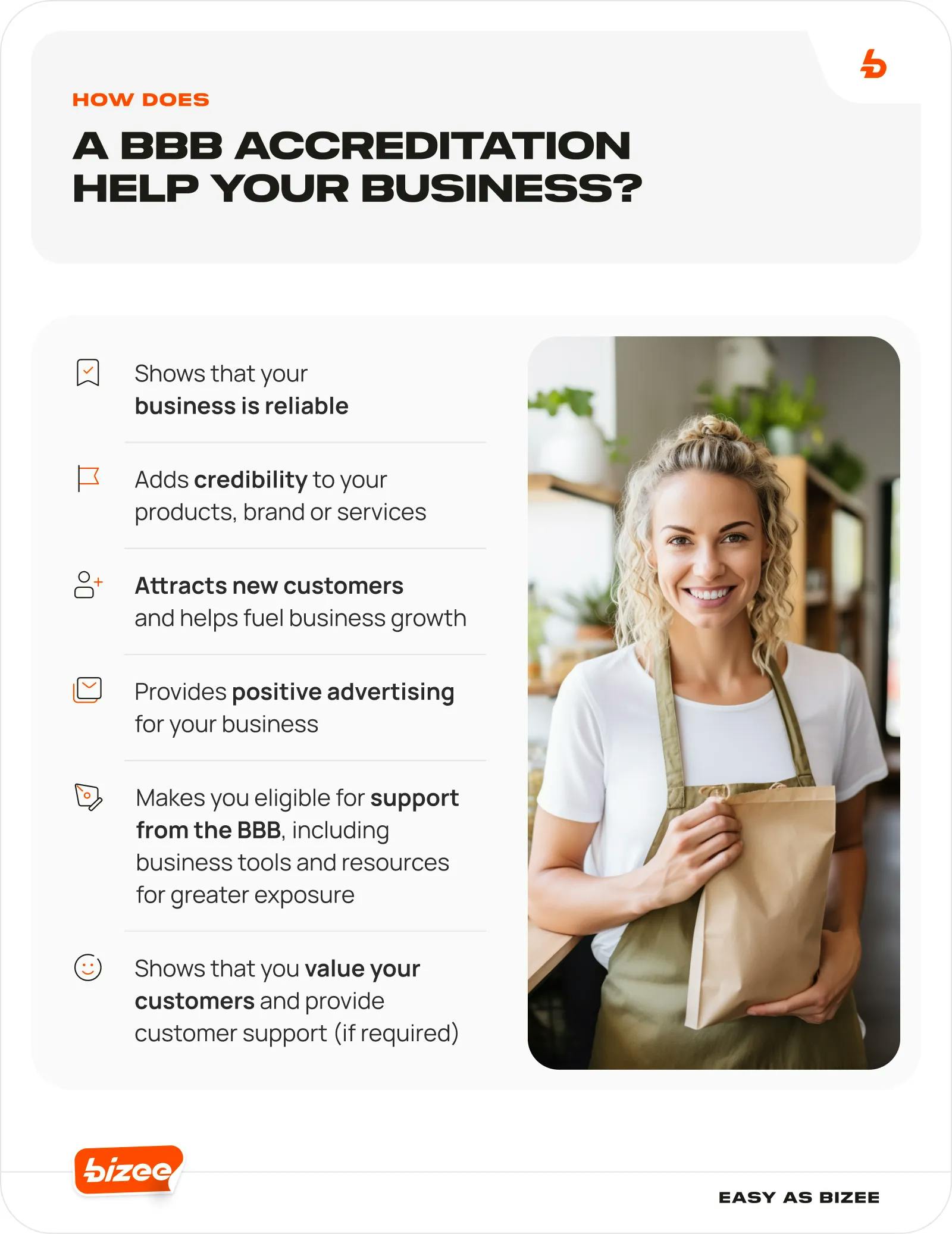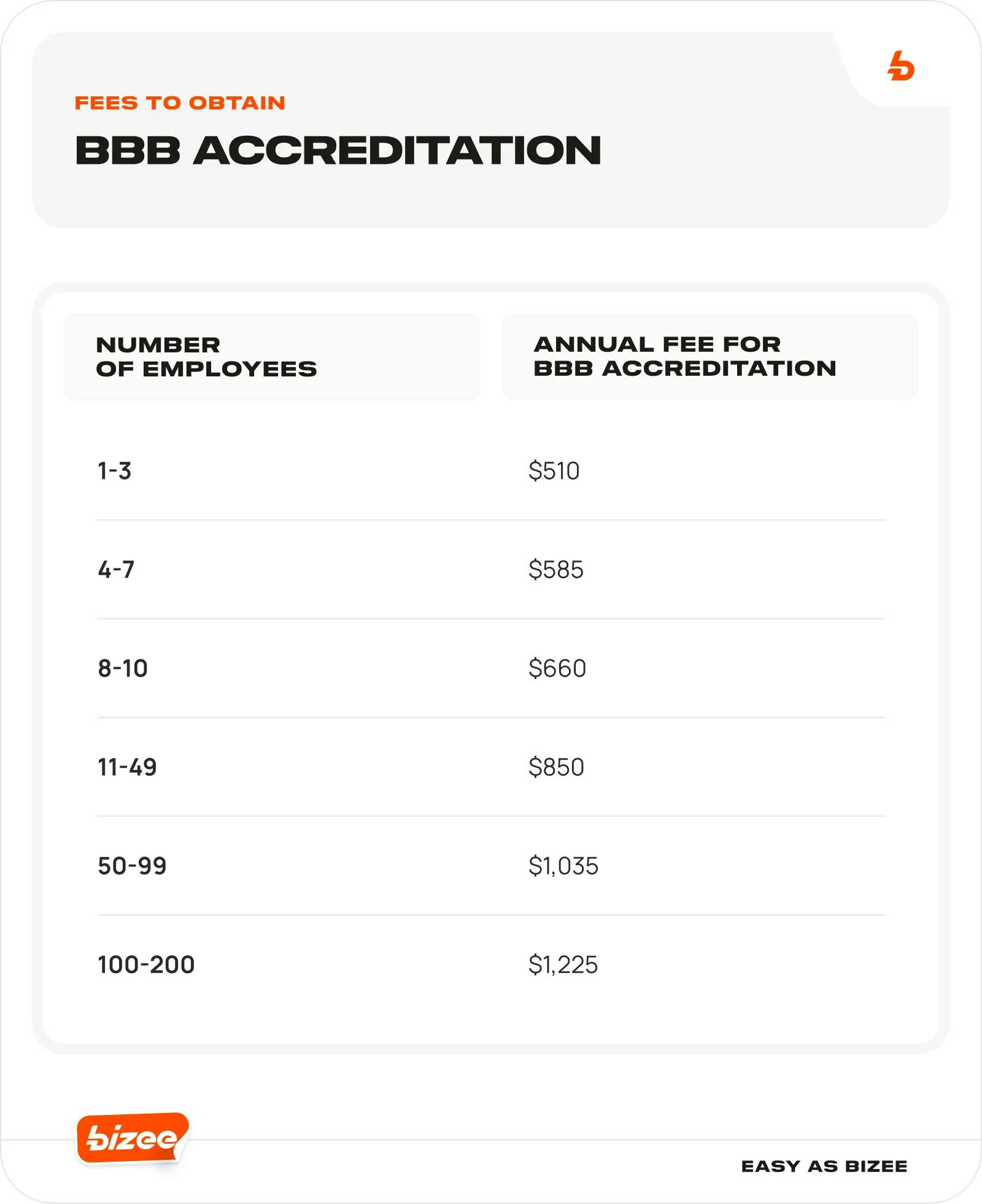Services
Services
Services
Services

Please note: This post contains affiliate links and we may receive a commission if you make a purchase using these links.
W e’ve seen the logo and signs on the doors of brick-and-mortar stores and offices and while surfing the web and visiting ecommerce sites. It’s the flaming torch with the three capital letters “BBB”: standing for the Better Business Bureau. But what does the Better Business Bureau do to help consumers as well as support small businesses? How does a business obtain BBB accreditation, and what, if any, are the benefits for small business owners?
Small Business Resources that Keep You Moving Forward.
Subscribe Now

The Better Business Bureau — more commonly referred to simply by its initials “BBB” — is a nonprofit organization that was created to help people find trustworthy and reliable companies to do business with. The BBB was formed in 1912 with a mission to provide consumer protection as well as put a spotlight on businesses that followed unethical practices. It is not a government organization or agency but uses information and the power of that information to create a well-informed consumer.
According to the BBB’S website, its mission is to create an “ethical marketplace where buyers and sellers trust each other.” In order to achieve this, the BBB promotes marketplace trust by initiating the following practices:
For over 100 years, the BBB has worked to protect the public from unethical and harmful practices, as well as to promote businesses that meet high ethical standards and follow good business practices.
It’s clear that the Better Business Bureau helps protect customers, but how does the BBB help businesses? For honest and ethical small businesses, having BBB accreditation sends a positive message to potential clients and customers. It conveys that you run a trustworthy organization that values its patrons and can stand behind its services and offerings.
This customer support can go a long way, especially at a time when many scams have duped vulnerable consumers. Customers buying from or using the services of a dependable and ethical business can pay dividends for an accredited small business. It can build on customer loyalty knowing that the products and services are accurately advertised and represented by a business. It also lets the customer or client know that should there be an issue or concern, the problem will be addressed and resolved in a fair and honest manner through reliable customer support and service .
Having a loyal customer base that trusts your products and services also goes a long way when it comes to recommendations and reviews, which help attract new customers.
Here are a few additional ways a BBB accreditation helps your business:

A blue and white BBB sign on your door or website will help add value to your business. It signals trustworthiness. But in order to obtain this strategic advantage, businesses will need to apply for accreditation and meet the standards set by the Better Business Bureau.
The steps to apply for BBB accreditation are straightforward and can be initiated online. They include:
The application will be reviewed by the BBB's Accreditation Department, which will conduct a background check. Additional criteria will also need to be met for approval of the application, including:
Depending on where you’re located and how the local BBB office in your area processes applications, there is a chance that a representative from the BBB will contact you to complete the application process.
According to the BBB’s website, over 400,000 businesses in North America have received BBB accreditation and display the badge. This is in addition to the millions of business profiles utilized by millions of consumers each year.
Creating a business profile is free, but obtaining BBB accreditation does come with a fee (also referred to as “accreditation dues”). Fees depend on the number of employees in your business and are billed annually. While the fees vary according to chapter, this chart gives you a good idea of what you'll pay:

You’ll notice that one of the criteria to apply for accreditation is having a “B” rating. The BBB rates all the businesses in its system with a ranking that ranges from A+ to F. Much like the system used in schools across the country, the explanation here is cut and dry: A+ is the best rating and F is the worst. If there is insufficient information on a business, the rating will then be NR or “no rating.”
Business ratings are generated by taking into account over a dozen different variables and elements assigned by the BBB. The most important factors that play into the rating include:
When it comes to the difference between BBB rating and accreditation, it is important to remember that every business receives a rating, while only the highest-ranked businesses will have the opportunity to apply for and obtain accreditation.
Small business owners may wonder: Does it matter if a business is not BBB accredited? It all depends. Do you want to get that positive boost that comes with the BBB logo and the confidence it gives your current client base and future customer base that uses BBB reviews as a guide? If you're nodding yes , then it's clear: Having a BBB accreditation certification should play into your business strategy for success.
After receiving BBB accreditation, promoting this "status" should be part of your plan.
Although there is a cost involved, most business owners will recognize that the benefits outweigh the expense and may prove to be the determining factor that will bring in new business. Granted, the Better Business Bureau may not lead new clients directly to your storefront, office or website, but it will provide consumers with the ability to use its tools and research, which may ultimately lead them to your direction.
Having the “BBB” logo and accreditation certificate on display is also a confidence booster to you as a business owner and a trust signal on your website. It confirms that you are running your business ethically and responsibly. It also lets customers know that in some way, your business has been vetted, making it easier for them to put their trust in you.
If you are a small business owner and are looking to get your ducks in a row before applying for your BBB accreditation, get the right support with the Bizee blog. Get all the small biz tips, tools and resources you need — right to your inbox from the Bizee blog.
Small Business Resources that Keep You Moving Forward.
Subscribe Now


Peter Mavrikis is an author and editor with over 25 years of experience in publishing. He has worked as the Editorial Director for Barron’s Educational Series, as well as Kaplan Test Prep, where he ran the test prep, foreign language, and study guide. Read more


Get Bizee Podcast
Join us as we celebrate entrepreneurship and tackle the very real issues of failure, fear and the psychology of success. Each episode is an adventure.